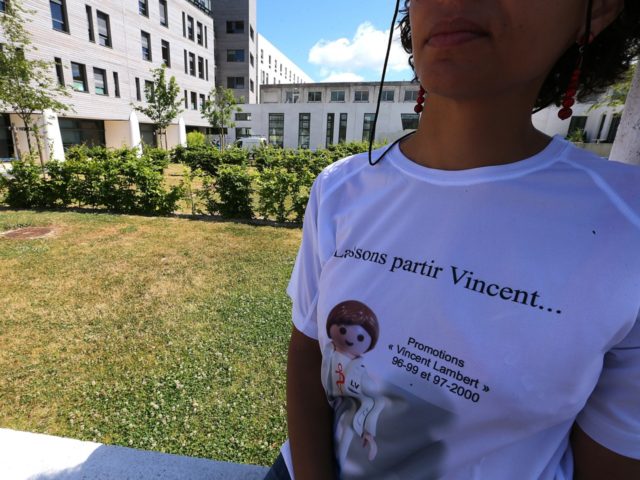The French Council of State upheld Wednesday the decision of a Reims hospital to remove food and water from Vincent Lambert, a 42-year-old man in a vegetative state for ten years.
The Council, which functions as France’s supreme administrative court, decided that the April 9 decision made by the University Hospital of Reims to suspend treatment was legal. Immediately after the Council made its ruling public, Vincent Lambert’s parents announced their intention to file an appeal before the European Court of Human Rights.
Lambert’s parents have also appealed on “different legal grounds” to the UN’s International Committee for the Protection of the Rights of Persons with Disabilities (CIDPH). “The decision of the Council of State is not final and the decision to cause the death of Vincent Lambert cannot be executed,” their lawyers declared.
Vincent Lambert suffered severe brain damage from a road accident in 2008 and has been hospitalized under palliative care ever since.
A number of ethicists have underscored the fact that Vincent is not terminally ill, breathes on his own and his internal organs function normally. The Lambert case has become the symbol of the debate on the end of life issues in France.
The case has also been likened to that of Terri Schiavo in the United States, a woman in a “permanent vegetative state” who was euthanized in 2005. In both cases, the spouse advocated for the removal of nutrition and hydration while the parents of the patient fought for the life of their child.
Vincent’s wife Rachel, who was not at the hearing, “does not want to become the symbol of an ideological struggle,” according to her lawyer, but she “has no doubt that Vincent would not have wanted therapeutic obstinacy.”
“There is no evidence to know the actual will of Vincent Lambert,” countered the lawyer of the parents, Claire Le Bret Desaché.
In its ethical judgment, the Catholic Church allows for the refusal of “aggressive medical treatment” for terminally ill patients when it is considered futile or overly burdensome, but considers the administration of nutrition and hydration to be part of the normal care due to a sick person. The Church considers the withholding of nutrition and hydration to be an act of passive euthanasia, which leaves the person to die of starvation.
The French Council’s most recent ruling is the latest chapter in a long legal battle, and doctors already attempted to euthanize Lambert in 2013 by removing food and reducing hydration, a condition Vincent survived for three weeks before normal care was restored.
Last year, Pope Francis spoke out twice of the Lambert case, along with that of little Alfie Evans in the UK, pleading that their lives be spared.
“I draw attention again to Vincent Lambert and Little Alfie Evans, and I would like to reiterate and strongly confirm that the only Lord of life, from the beginning to the natural end, is God!” Francis announced told crowds gathered in Saint Peter’s Square.
“And our duty, our duty is to do everything to preserve life,” the pope said. “We think in silence and pray that the lives of all people and especially of these two brothers of ours are respected.”
Viviane Lambert, Vincent’s mother, has insisted that “he looks at me” and attempts to “vocalize at length,” and has requested that her son be transferred to a specialized unit for severely disabled people.
Follow Thomas D. Williams on Twitter Follow @tdwilliamsrome

COMMENTS
Please let us know if you're having issues with commenting.